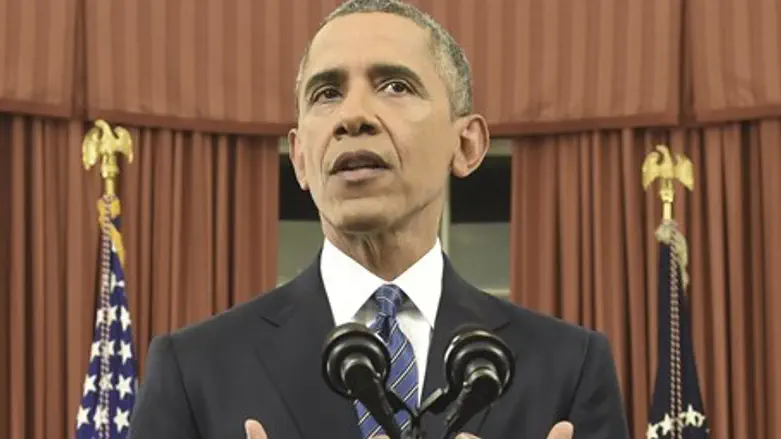
The leftist American Jewish group J Street on Sunday issued a response to the revelation that it received more than half a million dollars to advocate for the Obama administration's controversial nuclear deal with Iran.
The expose, revealed by Associated Press, noted that the Ploughshares Fund was named in an explosive New York Times profile of Obama aid Ben Rhodes, in which the President's chief propagandist listed the central groups responsible for creating an "echo chamber" in order to promote the deal. J Street was listed as receiving $576,000 to sell the deal, in a sum greater than that of any other group.
In response, the group that claims to be "pro-Israel and pro-peace" did not deny that it received the money to sell President Barack Obama's deal with Iran.
In a statement it said that it "acted in order to advance the nuclear deal with Iran out of faith that it was an important deal, that it had a great contribution also to the security of Israel."
"(This) faith is shared by us as well as many sources, both in the American government and in the Israeli security establishment, as well as among the Jewish public in the US, most of whom supported the nuclear deal."
The statement comes despite that fact that Israel's government fiercely opposed the deal, warning repeatedly that it paved Iran's way to a nuclear arsenal either by allowing it to cheat the deal which forbids international inspectors from checking Iran's covert nuclear facilities such as Parchin, or else by waiting for the limitations of the deal to expire in 15 years.
"The nuclear deal with Iran has blocked Iran's pathways to a nuclear weapon for the coming years," claimed J Street.
"Currently, Iran stood by the conditions of the agreement," it added, listing that, "it filled the plutonium stockpile in Arak with cement, stopped the activities of 2/3 of the centrifuges, sent 25,000 pounds of enriched uranium out of the state, and enabled unprecedented access to the nuclear facilities."
The leftist group continued by saying, "it's important to note in this context the words of IDF Chief of Staff Gadi Eizenkot and his predecessor Benny Gantz, according to which the agreement offers opportunities to deal with the nuclear threat and provides a wider maneuvering area for the Israeli security establishment."
Ironically, in Eizenkot's speech in January in which he claimed the Iran deal offers opportunities, he also said that in his estimation, "in the next five years, Iran will work to maintain the nuclear agreement, but in 15 years it will continue its vision to achieve a nuclear weapon."
J Street concluded by saying, "we are proud of the activities of the organization to advance the nuclear deal between the world powers and Iran, a deal that we believe is of the utmost importance for the security of the state of Israel."
